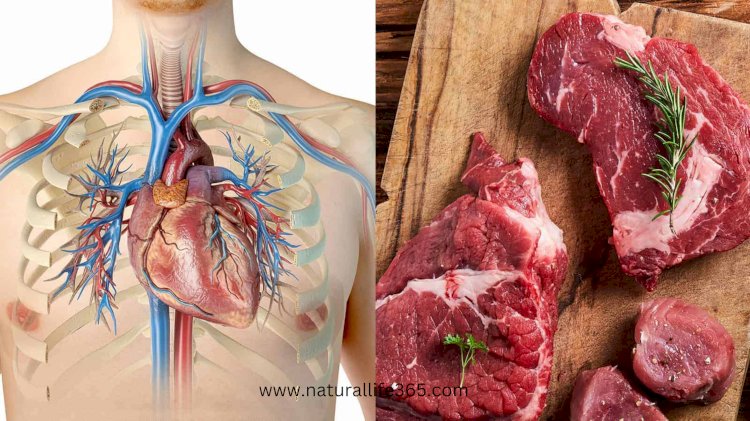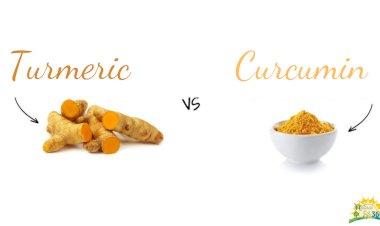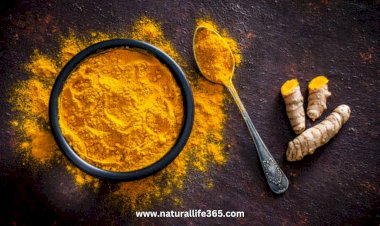What Happen When You Stop Eating Red Meat?
Unlock the benefits of quitting meat: From health improvements to environmental impact, explore the transformative journey now.

As you know, in India you cannot eat beef, a fundamental food source in my home country. Argentina is famous for barbecues and for exporting some of the best beef in the world. And does this mean that I also ate meat? From time to time, yes, but it was not my priority. In fact, I avoided it whenever I could, why? I knew that consuming meat daily was not good for my health and on the other hand, for some reason, I did not feel good eating it. Things I can't explain.
However, I was never a vegetarian because I did eat and still eat eggs and very occasionally I eat chicken and fish. But, before, I didn't know how to replace meat, so I ate it at least once or twice a week. Therefore, when I arrived in India, I did not suffer too much from the lack of red meat. I adapted very quickly without suffering withdrawal. I also learned how to cook vegetarian food that contains iron.
Still, stopping eating red meat definitely affects our health; the important thing is to know how to cook nutritious food. So, let's embark on this journey to discover what happens when you stop eating red meat.
Maybe you want to read 6 Misconceptions The World Still Has About India
Short-Term Changes
When you decide to eliminate meat from your diet, whether for health, ethical, or environmental reasons, your body undergoes several immediate changes. These changes can be both physical and psychological, and they vary from person to person. Here, I'll delve into the immediate effects you might experience when you make the transition to a meatless diet:
1. Nutrient Adjustments:
- Protein: Meat is a rich source of protein, and eliminating it may lead to an initial drop in your protein intake. This can leave you feeling less satiated and may require you to find alternative protein sources such as eggs, beans, lentils, tofu, or seitan.
- Iron: Meat, particularly red meat, is a primary source of heme iron, which is easily absorbed by the body. Without it, you may experience a temporary drop in iron levels. Plant-based sources like spinach, lentils, and fortified cereals can help compensate for this.
2. Digestive Changes:
- Increased Fiber Intake: Plant-based or veg diets are typically higher in fiber due to the abundance of fruits, vegetables, and whole grains. This increase in dietary fiber can lead to more regular bowel movements but may also cause some initial digestive discomfort if your system is not accustomed to it.
- Gastrointestinal Discomfort: Some individuals experience bloating, gas, or changes in stool consistency when transitioning to a plant-based/vegetarian diet. These symptoms are usually temporary as your gut microbiome adapts to the new fiber-rich foods.
3. Energy Levels and Mood:
- Many people report feeling more energized and alert after eliminating meat from their diet. This increased energy may be due to improved digestion and reduced inflammation.
- On the psychological side, you might experience a sense of accomplishment or alignment with your values, which can boost your mood and motivation. However, if you must stop eating beef by medical order, i.e., it’s not because it’s your will, you may have days in a bad mood.
4. Cravings and Emotional Responses:
- It's common to experience meat cravings in the immediate aftermath of giving it up. These cravings can be triggered by habit, nostalgia, or sensory memories associated with meat.
- Emotionally, you might feel a mix of satisfaction, pride, or even anxiety as you navigate this dietary change, especially if red meat has been a significant part of your life.
Tips For Managing Short-Term Challenges
Transitioning to a red meatless diet can present short-term challenges, but with the right strategies and mindset, you can navigate this period successfully. Here are some tips to help you manage these initial hurdles:
1. Gradual Transition
Consider gradually reducing your red meat consumption rather than suddenly quitting beef. Start with "Red Meatless Mondays" or designate a few days each week for plant-based/egg meals. This gradual approach can make the transition smoother and reduce the shock to your system.
2. Diversify Your Diet
Explore a wide variety of plant-based foods to ensure you're getting a balanced mix of nutrients. Incorporate fruits, vegetables, whole grains, legumes, nuts, seeds, and plant-based protein sources like tofu, tempeh, and seitan into your meals.
3. Learn About Nutrition
Educate yourself about the nutrients your body needs on a red meatless diet. Pay attention to sources of protein, iron, vitamin B12, calcium, and omega-3 fatty acids in plant-based foods. Consider consulting a registered dietitian to help plan a well-balanced vegetarian or vegan diet.
4. Cook at Home
Cooking your meals allows you to have full control over your ingredients and their preparation. Explore vegetarian and vegan recipes to discover new flavors and cooking techniques. Homemade meals are often healthier and more cost-effective than dining out.
5. Read Labels
Be mindful of food labels, as some processed and packaged foods may contain hidden animal-derived ingredients. Familiarize yourself with common animal-based additives and learn how to spot them on ingredient lists.
6. Stay Hydrated
Drinking enough water is essential, especially when you increase your fiber intake. Adequate hydration can help alleviate digestive discomfort and prevent constipation.
7. Probiotics
Consider incorporating probiotic-rich foods like yogurt (if you're not following a vegan diet) or fermented vegetables into your meals. Probiotics can support a healthy gut microbiome and ease digestive adjustments.
8. Seek Support
Join online communities, forums, and social media groups or read books dedicated to plant-based/vegetarian/egg diets. Connecting with others who have similar goals and experiences can provide valuable advice, recipe ideas, and emotional support.
9. Listen to Your Body
Pay attention to how your body responds to dietary changes. If you experience persistent discomfort or unusual symptoms, consult a healthcare professional or dietitian for guidance.
10. Be Patient
Understand that adapting to a meatless diet is a process. It's normal to face challenges, cravings, and moments of doubt. Be patient with yourself and acknowledge that it's okay to take small steps toward your dietary goals.
By implementing these tips and staying committed to your goals, you can effectively manage the short-term challenges associated with eliminating meat from your diet and pave the way for a healthier, more sustainable, and ethically conscious lifestyle.
Long-Term Benefits
Choosing a red meatless diet, which involves excluding red meats like beef from your meals, can offer a range of health advantages. Here are some key benefits associated with this dietary choice:
1. Reduced Risk of Chronic Diseases
- Heart Health: Reducing or eliminating red meat from your diet can lower your intake of saturated fats and cholesterol, which are linked to heart disease. A meatless diet may lead to lower blood pressure and improved cardiovascular health.
- Lower Cancer Risk: High consumption of meat, particularly processed meats like bacon and sausages, is associated with an increased risk of certain cancers, including colorectal cancer. By avoiding red meat, you may reduce your cancer risk.
2. Weight Management
A red meatless diet is often lower in calories and saturated fats. This can aid in weight management and help prevent obesity, a risk factor for numerous health issues.
3. Better Digestive Health
Red meat can be difficult to digest for some individuals. By eliminating it from your diet, you may experience improved digestive comfort, reduced bloating, and less risk of gastrointestinal issues.
4. Improved Cholesterol Levels
Red meat is known to contain high levels of cholesterol and saturated fats, which can increase LDL (bad) cholesterol levels. Adopting a red meatless diet can contribute to healthier cholesterol profiles.
5. Lower Risk of Type 2 Diabetes
Some studies suggest that a diet low in red meat may reduce the risk of developing type 2 diabetes. Plant-based/vegetarian diets tend to be rich in fiber, whole grains, and legumes, which can help stabilize blood sugar levels.
6. Reduced Inflammation
Chronic inflammation is associated with a range of health problems, including autoimmune diseases and heart disease. Plant-based/veg diets, including those without red meat, are often anti-inflammatory and may help reduce inflammation markers in the body.
7. Improved Longevity
Research has indicated that individuals who follow plant-based/vegetarian diets, including those without red meat, tend to have a longer life expectancy and a lower risk of premature death.
8. Environmental and Ethical Impact
While the focus here is on health advantages, it's worth noting that a red meatless diet also has positive environmental and ethical implications, as it reduces the demand for resource-intensive livestock farming and minimizes harm to animals.
It's important to emphasize that a red meatless diet can be highly nutritious when carefully planned. To ensure you receive all essential nutrients, focus on a well-balanced diet that includes a variety of plant-based foods such as fruits, vegetables, whole grains, legumes, nuts, and seeds, and if you eat egg, include it also. Consulting with a registered dietitian can also help you create a personalized dietary plan that aligns with your health goals.
Maybe you want to read Vegetarianism and Weight Loss: Strategies for Success
Environmental Impact of Reducing Red Meat Consumption
Reducing red meat consumption can have a significant positive impact on the environment. The production of red meat, particularly beef, is associated with a range of environmental challenges. Here, we will explore the environmental implications of cutting back on red meat:
1. Reduced Greenhouse Gas Emissions
Beef production is one of the largest contributors to greenhouse gas emissions in the agricultural sector. Cows produce methane during digestion, a potent greenhouse gas. By consuming less red meat, individuals can contribute to lower methane emissions, mitigating climate change.
2. Preservation of Natural Resources
The production of red meat requires substantial land, water, and food resources. Reducing red meat consumption can help conserve these valuable resources. It takes far less land and water to produce plant-based foods compared to raising livestock.
3. Deforestation Prevention
In some regions, forests are cleared to make way for cattle ranching. This deforestation not only contributes to habitat loss but also releases stored carbon dioxide into the atmosphere. A reduction in red meat demand can help slow down deforestation rates.
4. Water Conservation
Livestock farming, particularly beef production, consumes vast amounts of water. By choosing alternatives to red meat, individuals can indirectly reduce their water footprint, as plant-based foods generally require less water to produce.
5. Decreased Pollution
Livestock farming generates considerable amounts of manure and waste, which can lead to water pollution if not managed properly. A decrease in red meat consumption can contribute to reduced agricultural runoff and water pollution.
6. Biodiversity Protection
Large-scale livestock farming can lead to habitat destruction and fragmentation, endangering wildlife and biodiversity. Shifting away from red meat consumption helps protect natural ecosystems and wildlife habitats.
7. Less Antibiotic Use
The livestock industry often relies on antibiotics to promote growth and prevent disease in animals. Reducing red meat consumption can help reduce the demand for antibiotics in agriculture, which is linked to antibiotic resistance.
8. Lower Carbon Footprint
A diet with less red meat tends to have a smaller carbon footprint. Plant-based foods have lower emissions associated with their production and transportation compared to animal products.
9. Sustainable Agriculture Promotion
As consumer demand for plant-based alternatives grows, it encourages the development and adoption of more sustainable agricultural practices, including organic farming and regenerative agriculture.
It becomes evident that this dietary choice can have far-reaching effects on your health, the environment, and even your ethical perspective. The decision to go red meatless is not merely a change in eating habits; it's a multifaceted transformation with a host of consequences.
Ethical considerations also play a significant role in the decision to stop eating red meat. For many, it is a conscious choice to reduce harm to animals and support more humane and compassionate treatment in the food industry.
In conclusion, what happens when you stop eating red meat is not just a transformation of your diet but a step towards a healthier, more environmentally friendly, and ethically conscious lifestyle. Whether you choose to go completely red meatless or simply reduce your consumption, your decision can make a positive impact on your life and the world around you. It's a journey worth embarking upon, one plate at a time.
If you value these free online resources provided by Natural Life 365, please consider supporting my website by sharing the blogs![]()
References:
- Meatless meals: The benefits of eating less meat
- Benefits and Risks Associated with Meat Consumption during Key Life Processes and in Relation to the Risk of Chronic Diseases
- Health effects associated with consumption of unprocessed red meat: a Burden of Proof study
- What Happens When You Stop Eating Meat
- Strategies to reduce red meat and elevate your plate
- Plate and the Planet
- Meat Increases Heart Risks, Latest Study Concludes (Published 2020)
DISCLAIMER:
Some of the links in this content may be affiliate links. This means that if you click on one of the links and make a purchase, I may receive a commission (at no extra charge to you). However, I only recommend products that I personally use and have tested myself. Also, understand that I have taken reasonable steps to ensure that the information on this content is accurate, but I cannot represent that the website(s) mentioned in this post are free from errors. Please, check the Affiliate Disclosure at the bottom of this website.








































